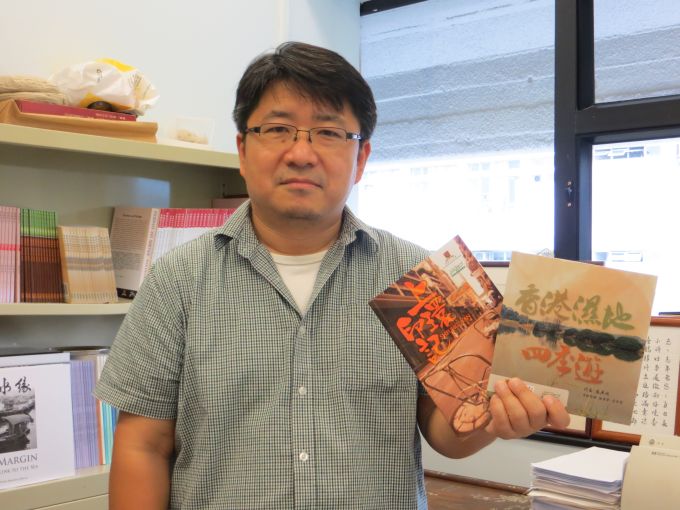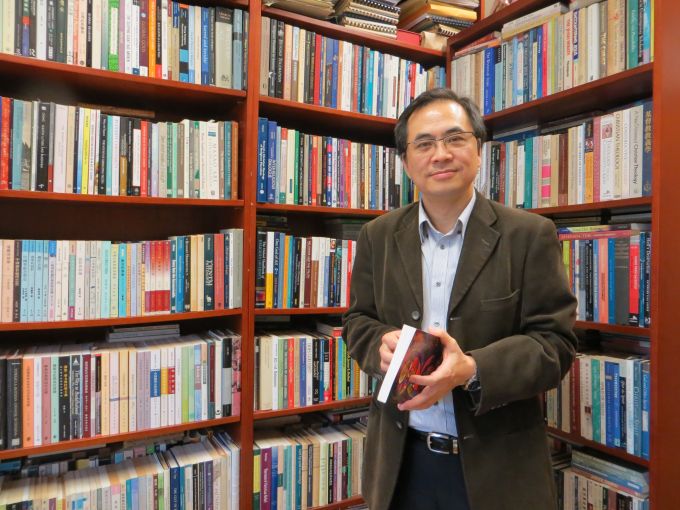Professor Sidney Cheung, Associate Dean (Education)
After serving as the Chairperson of the Department of Anthropology for six years, you immediately take up the Associate Deanship (Education). What makes you take up this challenging position?
I am honored to serve as the Associate Dean (Education) for the Faculty. The role of Associate Dean is more like a bridge facilitating the communication between the University and the faculty members. I strongly agree with our Faculty Dean on the direction and vision of the future development of the Faculty. Having joined the Faculty for years and being a senior faculty member, I feel obliged to contribute to the Faculty in another capacity. I believe my prior experience as Department Chairperson has better prepared me for this new role. In addition, the established network with faculty members would certainly facilitate my future work.
Do you find any differences between the roles of Department Chairperson and Associate Dean (Education)?
The work nature of the two positions varies. While a Chairperson is expected to handle a diversity of tasks spanning from administrative work, student matters and manpower and budgetary planning, Associate Dean (Education) will focus on assisting the Faculty Dean in the functional area of education at the University level and at the planning stage, from a macro perspective.
What is your expectation on your new role?
With the good legacies of the past, I am not keen on introducing changes at the moment. Instead, it is an opportune time to review what have been achieved so far and explore how we move to a new height. Take the review of the 4-year curriculum as an example. The first cohort of FYFD students studying the 4-year curriculum will graduate in 2016. It is time for faculty members to share their views on the effectiveness of the new curriculum at this juncture, including the implementation of the capstone courses.
In view of the keen competition of resources, it is also imperative for faculty members to seek other external resources to support research and teaching. The Institute of Future Cities which I serve as Associate Director is a typical project funded by external resources. I hope to work closely with other junior faculty members in this direction.
What are your views on adopting new pedagogies such as flipped classroom which has received lots of attention in recent years?
In this digital age, there is no doubt that flipped classroom can certainly benefit students' learning. Considering that it is a highly technology-dependent teaching methodology requiring a lot of support and infra-structure, the integration of this approach to classroom teaching can be adopted gradually. To build up a momentum for a long-term implementation, it is good to encourage and provide support for a trial run at the time being.
Ultimately, the University can consider creating a central database for collecting all teaching resources of flipped classroom. The database is to be shared by all teachers in order to benefit the maximum number of students.
 Associate Dean (Education) with his two recent publications
Associate Dean (Education) with his two recent publications
Professor Lai Pan-chiu, Associate Dean (Research)
You were the Associate Dean (Education) and the Associate Dean (Student Affairs) for a fairly long period, how do you perceive your new role as the Associate Dean (Research)?
The nature of work of the Associate Dean (Education) and the Associate Dean (Student Affairs) is similar as the responsibilities of both positions focus mainly on students but in a different perspective. From a teacher's point of view, I am pleased to have played the two roles to serve and develop a better learning environment for students.
The role of the Associate Dean (Research) is somewhat different, it targets for teaching staff and is responsible for all research matters and development of the Faculty; and the enhancement of research quality of individual staff and the Faculty. All positions of the Associate Deanship are equally important in the strategic development of the Faculty.
I have acquired a relatively good knowledge on the Faculty business after serving the Faculty for years and have an idea on the work in the research area. This helps me to adapt to the new role in a short period of time.
How do you project the research direction and development of the Faculty of Arts?
The Faculty has been making promising endeavors to secure more RGC's GRF projects over the years. We are delighted to see an increase in GRF application and we move forward to improve the quality of proposals and the success rate. To put successful GRF proposals online for members' reference is one example of the move.
Apart from GRF application, the Faculty will put more effort in building up a momentum for cross-departmental collaboration. For example, the Faculty plans to organize more inter-departmental colloquium talks to facilitate dialogue across disciplines. The Faculty Reserve for research activities also gives priority to fund inter-disciplinary research activities.
The Faculty strongly encourages faculty members to apply for RGC's CRF for their inter-disciplinary research and invites outstanding professors with good track records on GRF grants to engage in collaborative research across disciplines and/or across institutions.
You have taken up many administrative posts at department/ Faculty/ University levels in addition to your regular teaching duties. Would you please share your time management in your hectic schedule?
I work from 9am till 7pm, every Mon to Sat. I find myself more efficient and lucid in the morning and prefer to do research and writing during this quality time.
If possible, those tasks which need interaction with others, e.g. meetings and teaching, will be arranged in the afternoon.
How do you consider the future of the arts and humanities in Hong Kong? Would the arts and humanities be put in a disadvantageous position in the latest RAE?
I am optimistic about the future development of the arts and humanities in Hong Kong. With regard to the UGC's RAE (Research Assessment Exercise) 2014, I think that it is important to find the right panel members to assess the submitted research output items. In future, we should be more proactive in nominating relevant panel members. With a more proper grouping of disciplines (e.g. Japanese studies was put under the discipline of "area studies" instead of "Japanese languages and literature"), the current arrangement is fairer than the last RAE.
For the types of publication, it is indisputable that research output published in prestigious journals or by well-known publishers and in international languages will facilitate the international visibility of scholars. However, the contribution to society and local community via knowledge transfer of the research output is equally important to an academic researcher.



